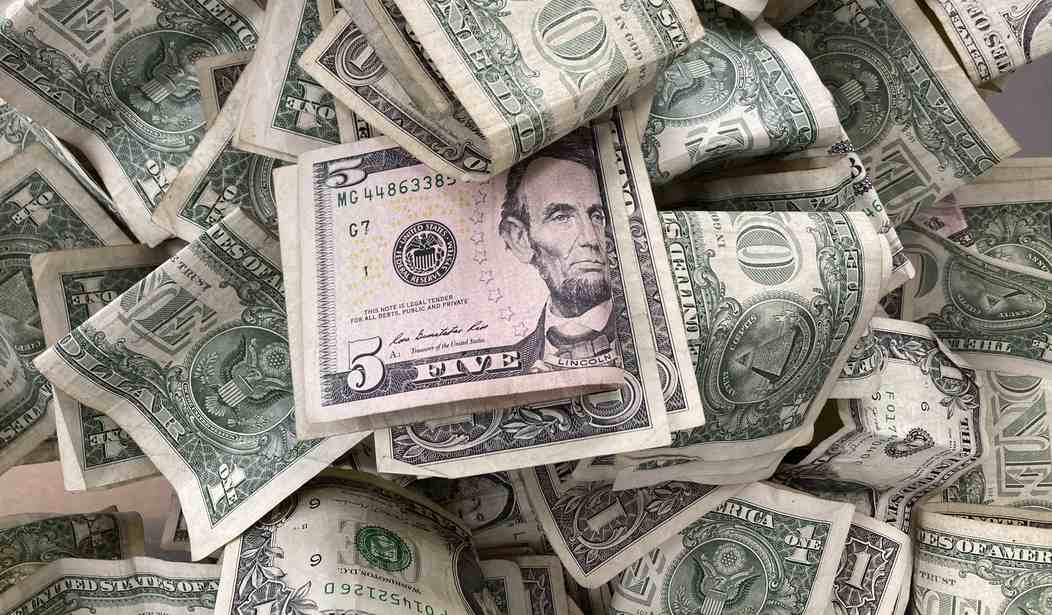About 15 years ago, I attended an entrepreneurship education conference in St. Louis. Among the attendees were educators from Great Britain. This was fairly unusual, and I was curious why they would have traveled to the central United States. When I inquired, their answers were enlightening.
They noted that American entrepreneurs' contributions to higher education were prodigious. They remarked on the many colleges and universities named for the benefactors who donated huge sums of money to find them, not to mention the countless buildings, wings, programs, and scholarships created and maintained by perhaps lesser amounts. Even at publicly funded schools here in the U.S., private donations provide substantial support.
"We have no comparable tradition of giving in the U.K.," one of the visitors further explained. "Our education is largely funded by the government. We're interested in changing that dynamic."
It makes sense, then, that they would attend a conference on entrepreneurship. America's entrepreneurial culture has produced our incomparable prosperity and corresponding charity. And it's not only institutions of higher education that have been recipients of Americans' largesse. K-12 schools, hospitals, foundations, and innumerable charities receive gifts in numbers that increase almost every year -- even in difficult economic conditions.
The Lilly Family School of Philanthropy at Indiana University-Indianapolis publishes Giving USA, an annual report about charitable giving in the U.S. According to Giving USA's most recent report, individuals, estates, foundations, and corporations gave $484.85 billion last year, a 4% increase over 2020. This is notwithstanding the shutdowns and economic fallout from the COVID-19 pandemic.
Recommended
One might assume the bulk of those gifts is provided by big corporations or the wealthiest members of our society. But that assumption would be wrong. Individuals, not companies or foundations, represent just under 70% of all giving. And what Giving USA calls "megagifts" ($450 million or more) represent only 5% of the total gifts by individuals.
This has been consistent throughout our country's history. Arthur Brooks, former president of the American Enterprise Institute and current professor at Harvard University, published a bestselling book in 2006 titled "Who Really Cares." Brooks' findings poked holes in the popular narratives about money, class, generosity, and politics. Contrary to conventional wisdom, middle-class, lower-middle-class, and even the working poor in America give more generously than wealthier Americans; religious Americans are more likely to give than "secularists"; and conservative Americans are markedly more charitable by every measure (time, talent, treasure) than liberals or progressives.
Among the reasons Brooks posits why liberals and progressives are inclined to be less personally charitable is because they believe that charitable organizations and private giving are inadequate substitutes for massive government programs.
Quite the opposite is true. The costs of government programs are inflated by waste and graft. (For example, a recent article in the New York Post reported on hundreds of billions of the COVID-19 relief funds spent by the federal government that was lost to fraud.) Worse, the government is embarrassingly bad at fixing the problems it spends trillions to address.
The leftmost fringes of American liberalism have traditionally held a low opinion of business, private enterprise, and capitalism generally. But progressives controlling the dominant narrative today are not just anti-business. They have twisted their environmental concerns into an anti-growth posture. They are correspondingly anti-prosperity, because "prosperity" translates to growth. Author, activist, and former California gubernatorial candidate Michael Shellenberger refers to these anti-prosperity true believers as "nihilists" who oppose any form of energy except so-called renewables (e.g., solar and wind), which are unreliable, cannot be stored, and cannot even be produced for the world's population without land and other natural resource commitments that far outstrip any perceived reduction in emissions. If life is correspondingly made miserable for the overwhelming majority of the world's population, so be it.
Similarly, the Biden administration and like-minded cronies around the world thumb their noses at private enterprise and ignore its contributions to improved quality of life. Their policies raise taxes on small businesses and reduce the standard of living of the middle and upper-middle classes -- the same groups responsible for the lion's share of charitable giving in this country. Statists, globalists, and other totalitarians behave as if it's no great loss if we lose the social strata of small businesses. They think they can do a better job of running the country and providing for everyone's needs.
That is a deeply destructive falsehood, the proof of which is all around us.
This year's Giving USA report sounded like a cautionary note. Despite the increased giving last year, "the growth in giving did not keep pace with inflation, causing challenges for many nonprofits." Keep in mind that this report was written earlier this year, before the worst of the inflation triggered by the Biden administration's policies hit.
What the report warned of, I'm seeing at one of the local charities with which I am involved. Inflation has hit our community hard, and visits to our food pantry are higher than they have ever been. The cost of buying food for the pantry is up by nearly 20%. At the same time, donations are down. Just as Professor Brooks noted in his research, a significant number of our donors are middle-class or lower-middle-class. Rising rents, rising food prices, and rising gas prices are straining their budgets, leaving less to give, even though they want to give.
America's prosperity -- the engine that has lifted millions out of poverty -- is entrepreneurship. That same initiative has also produced the most generous people in the world.
No government program can replace that. And the wrong government policies will destroy it.
To find out more about Laura Hollis and read features by other Creators Syndicate writers and cartoonists, visit the Creators Syndicate website at www.creators.com.

























Join the conversation as a VIP Member